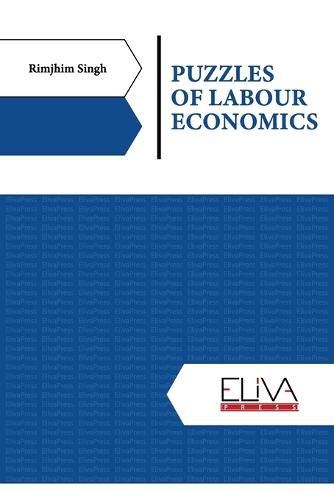Readings Newsletter
Become a Readings Member to make your shopping experience even easier.
Sign in or sign up for free!
You’re not far away from qualifying for FREE standard shipping within Australia
You’ve qualified for FREE standard shipping within Australia
The cart is loading…






This book deals with two major puzzles in Labor Economics. The first puzzle is why do wages exist above the market clearing levels? Does Adam Smith's "invisible hand" materialize here or not? The efficiency wage argument suggests a way out of this tight corner by claiming that it is possible to reduce the cost of production by paying wages above market clearing level. The Efficiency Hypothesis tries to explain the presence of involuntary unemployment and wage differentials. The fact is that in the Efficiency Wages model the wages are not determined by demand-supply alone. This book critically reviews the rationale of wages above the market clearing level using Leibenstein and Shapiro and Stiglitz models. The second one is why do skill premiums not always increase for skilled workers in developed countries? It is often conceived that the factors which explain the movements in skill premium in a developed country also explain the movements of skill premium in a developing country. But the previous pieces of research prove that this may not be true even for developed countries both theoretically as well as empirically. The book would also deal with the de-skilling and re-skilling debate in capitalism. This debate is extremely relevant today in view of the advent of the Fourth and Fifth Industrial Revolutions. The book is divided into 2 chapters. Chapter 1 probes the possible explanations for the first puzzle and Chapter 2 deals with the re-skilling and de-skilling debates and skill premium related anomalies both for developing and developed countries.
$9.00 standard shipping within Australia
FREE standard shipping within Australia for orders over $100.00
Express & International shipping calculated at checkout
This book deals with two major puzzles in Labor Economics. The first puzzle is why do wages exist above the market clearing levels? Does Adam Smith's "invisible hand" materialize here or not? The efficiency wage argument suggests a way out of this tight corner by claiming that it is possible to reduce the cost of production by paying wages above market clearing level. The Efficiency Hypothesis tries to explain the presence of involuntary unemployment and wage differentials. The fact is that in the Efficiency Wages model the wages are not determined by demand-supply alone. This book critically reviews the rationale of wages above the market clearing level using Leibenstein and Shapiro and Stiglitz models. The second one is why do skill premiums not always increase for skilled workers in developed countries? It is often conceived that the factors which explain the movements in skill premium in a developed country also explain the movements of skill premium in a developing country. But the previous pieces of research prove that this may not be true even for developed countries both theoretically as well as empirically. The book would also deal with the de-skilling and re-skilling debate in capitalism. This debate is extremely relevant today in view of the advent of the Fourth and Fifth Industrial Revolutions. The book is divided into 2 chapters. Chapter 1 probes the possible explanations for the first puzzle and Chapter 2 deals with the re-skilling and de-skilling debates and skill premium related anomalies both for developing and developed countries.